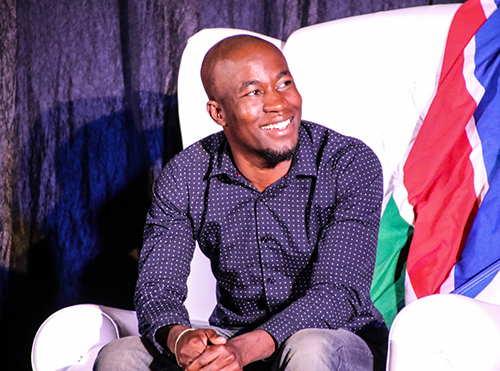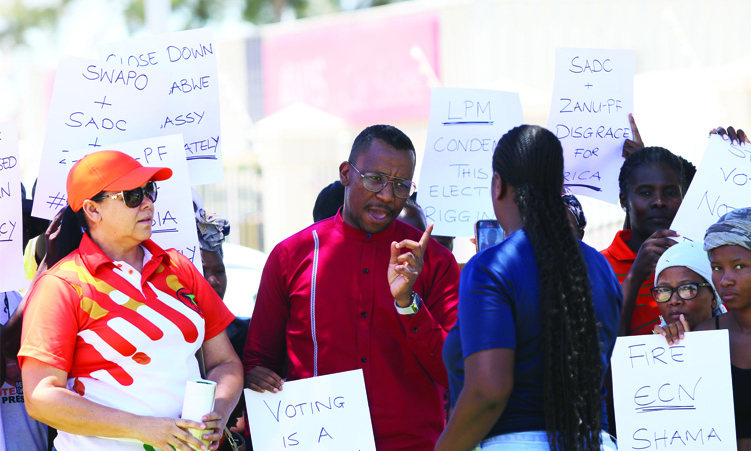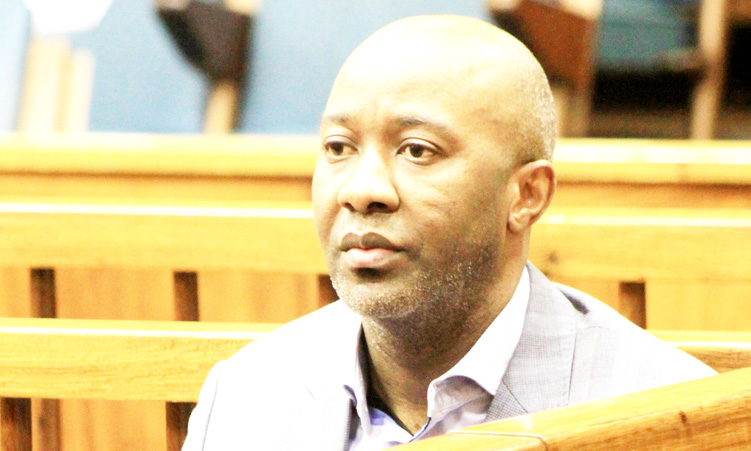THE OFTEN ignored advantage of political scandals is their propensity to bring ‘higher discourse’ closer to ordinary people.
US president Donald Trump’s ‘Nambia’ scandal delivered international politics to the lips of youth downloading liquor in Windhoek’s Eveline Street.
At the lunch meeting with select African leaders, including President Hage Geingob, recently held in New York, Trump referred to Namibia as ‘Nambia’ on more than two occasions.
President Geingob, then seated with African leaders served with salad, did not correct him. Later on, outside the scandal venue, he celebrated the remarks as a marketing stunt.
The long suspicion that part of Geingob’s foreign policy strategy is the desperation to get noticed by any means necessary is thus vindicated. It is no longer puzzling why his inner circle dishonestly presented Christopher Cox as Trump’s adviser.
To astute observers of our politics, unlike the liquor downloading youth, this scandal is unsurprising for the signs have been there. An abstemious analysis of the making and executing of Geingob’s foreign policy is likely to see a foreign policy of ambiguity, contradictions, expediency and dishonesty.
While Article 96 of the Constitution and the 2004 white paper on foreign policy previously provided the basis and context of Namibia’s foreign policy, Geingob chose an adventurist policy stance, which remains unexplained beyond slogans, of ‘friends to all and enemy to none’.
Can one be a friend to all in a world of conflict? If an elephant is standing on a tail of a mouse, as you stand proclaiming ‘friends to all’, will the mouse accept such logic? Will the elephant, a beneficiary of your generous neutrality, believe you are a friend to a mouse?
Namibia, Angola and Zimbabwe, in 1998, signed a mutual defence pact providing that should any of the three states face an internal or external aggressor or adversary, others are obligated to defend it militarily. The pact still stands and it is unclear how the notion of ‘friends to all and enemy to none’ applies.
If we are friends to all, why do we have a mutual defence pact with Angola and Zimbabwe and not Uganda and Rwanda?
Namibia supports the independence of the Saharawi people. Morocco does not support this position. How can we, and are we, befriended to both Western Sahara and Morocco? Are we friends to both Israel and Palestine?
The government remains unclear on its foreign policy adventurism. In the absence of clarity, ambiguity and contradictions have since reigned supreme.
The assemblage of auxiliary foreign policy makers and implementers saw Netumbo Nandi-Ndaitwah, although appointed deputy prime minister, preserved as foreign minister with Peyavali Mushelenga, who has since obtained a bachelor, masters and PhD in foreign policy, retained as her deputy.
A former head of a cooking training centre, Maureen Magreth Hinda, was added as a double deputy minister. If retaining Nandi-Ndaitwah was to save costs how does one explain the double deputy ministers?
If retaining Mushelenga was to benefit from his foreign policy academic prowess what were the envisaged foreign policy benefits of Hinda’s culinary (cooking) supremacy? Indeed, a foreign policy riddled with ambiguity, contradictions and ambiguity.
Namibia’s recent vote against the UN motion on the Responsibility to Protect (R2P) – supported by more than 100 countries while Namibia is supported by only 20 anti-R2P countries – is illustrative of foreign policy contradictions and expediency.
The R2P concerns the obligation of the international community to end human suffering and protect and defend human rights beyond the constraint of states’ sovereignty. The UN used the same principle to assist Swapo in its fight for independence and quest to end human rights abuses and human suffering under the apartheid regime.
The vote is therefore alien and ahistorical. These are symptoms of a foreign policy characterised by ambiguity, contradictions and political expediency.
Days before Trump declared our health system as ‘self-sufficient’, a proclamation welcomed by Geingob, health minister Bernard Shidute Haufiku had announced that the health ministry’s special fund dealing with patients with special medical conditions had been depleted.
While Trump and Geingob were celebrating our health system the health minister was stating that his ministry “is critically short of money. I am hearing some statements that the worst is over but for this ministry the worst is not over”. Geingob had made statements that the economy had recovered – expediency and dishonesty at play.
Aimed at achieving national interest, a foreign policy derives its legitimacy from domestic objective and subjective realities.
Geingob’s foreign policy does not follow this logic. It zigzags according to dictates of political expediency.
President Geingob told the UN General Assembly that Namibia is grooming the ‘youth’ and attorney general Sakey Shanghala whom he declared as the youngest in the world is one of such ‘youth’.
Namibia’s youth policy defines youth as those between the ages of 18 and 35. The African Union also sees youth as between 18 and 35. The UN, to whom Geingob told untruths, defines youth as between 15 and 24 years. To the UN, Shanghala stopped being youth 16 years ago.
At 40 he is not a youth in Namibia or Africa – only in Geingob’s mind.
The UN is unaware that weeks ago Geingob presided over the Swapo political bureau cooking a ’30 years rule’ to block youth from taking over leadership.
We are effectively dealing with a foreign policy characterised by political expediency and dishonesty. Its sloganeering is a tale, to paraphrase Shakespeare, full of sound and fury signifying nothing. There will be time to deal with what can be done.
Stay informed with The Namibian – your source for credible journalism. Get in-depth reporting and opinions for
only N$85 a month. Invest in journalism, invest in democracy –
Subscribe Now!






